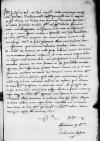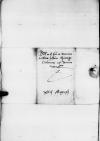Proficiscentibus serenissimis Sigismund I Jagiellon (Zygmunt I) (*1467 – †1548), King of Poland and Grand Duke of Lithuania (1506-1548); Duke of Głogów (Glogau) (1499-1506), Duke of Opava (1501-1506), Governor of Silesia (1504-1506); son of King Kazimierz IV Jagiellon and Elisabeth of Austria
Bona Sforza (*1494 – †1557), Queen of Poland and Grand Duchess of Lithuania (1518-1557); the second wife of Sigismund I Jagiellon; Duchess of Bari and Rossano; daughter of Gian Galeazzo Sforza of Milan and Isabella of Aragon⌊principibus nostrisSigismund I Jagiellon (Zygmunt I) (*1467 – †1548), King of Poland and Grand Duke of Lithuania (1506-1548); Duke of Głogów (Glogau) (1499-1506), Duke of Opava (1501-1506), Governor of Silesia (1504-1506); son of King Kazimierz IV Jagiellon and Elisabeth of Austria
Bona Sforza (*1494 – †1557), Queen of Poland and Grand Duchess of Lithuania (1518-1557); the second wife of Sigismund I Jagiellon; Duchess of Bari and Rossano; daughter of Gian Galeazzo Sforza of Milan and Isabella of Aragon⌋ in Poland (Kingdom of Poland, Polonia)⌊RegnumPoland (Kingdom of Poland, Polonia)⌋ ex gratia obtinui, ut ad has Royal Prussia (Prussia Regalis), region, part of Prussia annexed to the Kingdom of Poland in 1466 under the provisions of the Second Peace of Thorn⌊oras PrutenicasRoyal Prussia (Prussia Regalis), region, part of Prussia annexed to the Kingdom of Poland in 1466 under the provisions of the Second Peace of Thorn⌋ divertere potuissem cum studio invisendi Dominationem Vestram Reverendissimam, tum gratia videndi Gdańsk (Danzig, Dantiscum), city in northern Poland, on the Bay of Gdańsk at the mouth of the Vistula, on the Baltic, the biggest and wealthiest of the three Great Prussian Cities (Gdańsk, Thorn (Toruń), and Elbing (Elbląg)) with representation in the Council of Royal Prussia; a member of the Hanseatic League⌊GdanumGdańsk (Danzig, Dantiscum), city in northern Poland, on the Bay of Gdańsk at the mouth of the Vistula, on the Baltic, the biggest and wealthiest of the three Great Prussian Cities (Gdańsk, Thorn (Toruń), and Elbing (Elbląg)) with representation in the Council of Royal Prussia; a member of the Hanseatic League⌋ et Marienburg (Malbork), town and castle in northern Poland, Pomeranian Voivodeship, on the Nogat river, a branch of the Vistula at its delta, the capital of the Grand Masters of the Teutonic Order in Prussia (1309-1457), a voivodeship capital in Royal Prussia, which belonged to the Kingdom of Poland (1466-1772). Marienburg (taking turns with Graudenz (Grudziądz)) was the venue for the Provincial Diets of Royal Prussia, which were chaired by the bishop of Ermland (Warmia)⌊arcem MarieburgensemMarienburg (Malbork), town and castle in northern Poland, Pomeranian Voivodeship, on the Nogat river, a branch of the Vistula at its delta, the capital of the Grand Masters of the Teutonic Order in Prussia (1309-1457), a voivodeship capital in Royal Prussia, which belonged to the Kingdom of Poland (1466-1772). Marienburg (taking turns with Graudenz (Grudziądz)) was the venue for the Provincial Diets of Royal Prussia, which were chaired by the bishop of Ermland (Warmia)⌋, sed fortuna meis votis non aspiravit, nam cum essem Gdani, audivi a spectabili domino Johann von Werden (Constellatus, cf. HE, No. 148, p. 150, footnote No. 12) (*1495 – †1554), 1526 Mayor of Gdańsk (Danzig), from 1527 Starost of Neuenburg (Nowe), 1532-1535, 1538, 1539, 1546, 1551 Burgrave of Gdańsk, from 1535 Starost of Preußisch Mark (Przezmark) (1535-1540 together with Achatius von Zehmen (Cema)), 1536/1537 envoy of the Council of Royal Prussia to the Diet of the Kingdom of Poland held in Cracow (SBPN 4, p. 433-435; ZDRENKA 2, p. 368-369; MAŁŁEK 1976, p. 93, 161)⌊Iohanni de WerdenJohann von Werden (Constellatus, cf. HE, No. 148, p. 150, footnote No. 12) (*1495 – †1554), 1526 Mayor of Gdańsk (Danzig), from 1527 Starost of Neuenburg (Nowe), 1532-1535, 1538, 1539, 1546, 1551 Burgrave of Gdańsk, from 1535 Starost of Preußisch Mark (Przezmark) (1535-1540 together with Achatius von Zehmen (Cema)), 1536/1537 envoy of the Council of Royal Prussia to the Diet of the Kingdom of Poland held in Cracow (SBPN 4, p. 433-435; ZDRENKA 2, p. 368-369; MAŁŁEK 1976, p. 93, 161)⌋ Dominationem Vestram Reverendissimam iam arripuisse iter Cracow (Kraków, Cracovia), city in southern Poland, Małopolska, on the Vistula river, from 1038 capital of the Kingdom of Poland⌊CracoviamCracow (Kraków, Cracovia), city in southern Poland, Małopolska, on the Vistula river, from 1038 capital of the Kingdom of Poland⌋ versus, venienti mihi Marieburgum magnificus dominus Feliks (Szczęsny) Srzeński (Sokołowski, Szreński) (*1502 – †1554), due to his Polish origin, his nomination to starostwo of Marienburg aroused opposition in Royal Prussia; 1521 Cup-Bearer of Gostyń; 1526-1532 Castellan of Rypin; 1530 Starost of Płock; 1532-1554 Voivode of Płock; 1535 Starost of Marienburg (Malbork) (his candidacy was supported by Dantiscus); 1534 envoy of the Diet in Piotrków to Vilnius to King Sigismund I⌊palatinus PlocensisFeliks (Szczęsny) Srzeński (Sokołowski, Szreński) (*1502 – †1554), due to his Polish origin, his nomination to starostwo of Marienburg aroused opposition in Royal Prussia; 1521 Cup-Bearer of Gostyń; 1526-1532 Castellan of Rypin; 1530 Starost of Płock; 1532-1554 Voivode of Płock; 1535 Starost of Marienburg (Malbork) (his candidacy was supported by Dantiscus); 1534 envoy of the Diet in Piotrków to Vilnius to King Sigismund I⌋, illius arcis praefectus, idem affirmavit. Quo divertere debuissem, haerebam, tandem idem Feliks (Szczęsny) Srzeński (Sokołowski, Szreński) (*1502 – †1554), due to his Polish origin, his nomination to starostwo of Marienburg aroused opposition in Royal Prussia; 1521 Cup-Bearer of Gostyń; 1526-1532 Castellan of Rypin; 1530 Starost of Płock; 1532-1554 Voivode of Płock; 1535 Starost of Marienburg (Malbork) (his candidacy was supported by Dantiscus); 1534 envoy of the Diet in Piotrków to Vilnius to King Sigismund I⌊dominus palatinusFeliks (Szczęsny) Srzeński (Sokołowski, Szreński) (*1502 – †1554), due to his Polish origin, his nomination to starostwo of Marienburg aroused opposition in Royal Prussia; 1521 Cup-Bearer of Gostyń; 1526-1532 Castellan of Rypin; 1530 Starost of Płock; 1532-1554 Voivode of Płock; 1535 Starost of Marienburg (Malbork) (his candidacy was supported by Dantiscus); 1534 envoy of the Diet in Piotrków to Vilnius to King Sigismund I⌋ me monuit, ut nullo pacto Löbau (Lubawa, Lubavia), town in northern Poland, Kulm Land (Ziemia Chełmińska), ca. 67 km E of Graudenz (Grudziądz), the main seat of the bishops of Kulm (Chełmno)⌊LubaviamLöbau (Lubawa, Lubavia), town in northern Poland, Kulm Land (Ziemia Chełmińska), ca. 67 km E of Graudenz (Grudziądz), the main seat of the bishops of Kulm (Chełmno)⌋ versus iter tenderem, me in Płock, town in central Poland, Masovia, on the Vistula River, since 1075 episcopal see⌊civitatem PlocensemPłock, town in central Poland, Masovia, on the Vistula River, since 1075 episcopal see⌋ recepturus, ubi meos currus et equos habeo cum aliquot meis servitoribus. Nam viam pessimam et multa incommoda narrabat, praeterea me mea frust<r>atum iri spe procul dubio tenebat. Ego inter has difficultates coniectus decrevi breviori via in Płock, town in central Poland, Masovia, on the Vistula River, since 1075 episcopal see⌊civitatem PlocensemPłock, town in central Poland, Masovia, on the Vistula River, since 1075 episcopal see⌋ concedere et veniens huc Thorn (Toruń, Thorunium), city in northern Poland, on the Vistula river in its lower reaches, main residence of the bishops of Kulm (Chełmno); one of the three Great Prussian Cities (along with Gdańsk and Elbing) which had representatives in the Council of Royal Prussia; a member of the Hanseatic League⌊ToruniumThorn (Toruń, Thorunium), city in northern Poland, on the Vistula river in its lower reaches, main residence of the bishops of Kulm (Chełmno); one of the three Great Prussian Cities (along with Gdańsk and Elbing) which had representatives in the Council of Royal Prussia; a member of the Hanseatic League⌋ audivi Dominationem Vestram Reverendissimam adhuc se Löbau (Lubawa, Lubavia), town in northern Poland, Kulm Land (Ziemia Chełmińska), ca. 67 km E of Graudenz (Grudziądz), the main seat of the bishops of Kulm (Chełmno)⌊LubaviaeLöbau (Lubawa, Lubavia), town in northern Poland, Kulm Land (Ziemia Chełmińska), ca. 67 km E of Graudenz (Grudziądz), the main seat of the bishops of Kulm (Chełmno)⌋ continere, quod adeo mihi molestissimum fuit, ut nihil umquam tulerim molestius, sed unum me solatur, cum audiam Dominationem Vestram Reverendissimam propediem se constituturam Cracow (Kraków, Cracovia), city in southern Poland, Małopolska, on the Vistula river, from 1038 capital of the Kingdom of Poland⌊CracoviaeCracow (Kraków, Cracovia), city in southern Poland, Małopolska, on the Vistula river, from 1038 capital of the Kingdom of Poland⌋[1], ubi quicquid est ad praesens omissum, sed non mea culpa, abundius poterit resarciri. Rogo itaque Dominationem Vestram Reverendissimam ignoscat veniam petenti et si me errasse iudicaverit, illius correctioni me submitto, dum praesens praesentem alloquar et latior dabitur coram copia fandi. Commendo me et servitia mea eidem Dominationi Vestrae Reverendissimae, quae diutissime et felicissime valeat.


 AAWO, AB, D. 4, f. 54v
AAWO, AB, D. 4, f. 54v